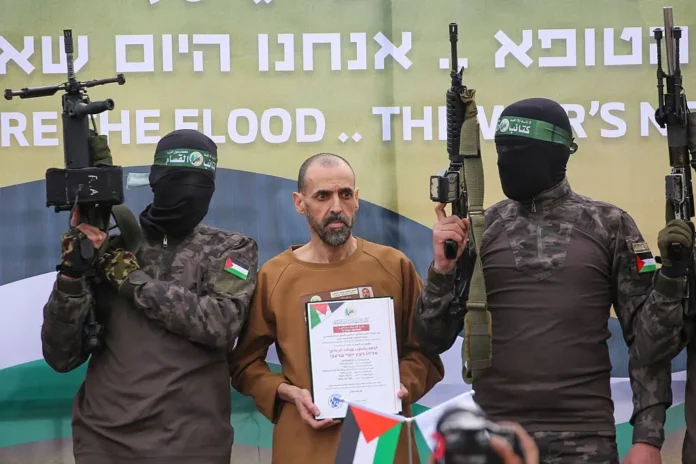As Israel nears the second anniversary of the October 7 attacks, one of the country’s most high-profile former hostages has spoken publicly about his ordeal, his devastating family loss, and the urgent need for peace.
Eli Sharabi, 53, was taken hostage during Hamas’s assault on Kibbutz Be’eri in 2023, one of the bloodiest days in Israel’s history. Nearly 1,200 Israelis were killed that day, with 251 others kidnapped. Sharabi endured 491 days in captivity, much of it underground in Hamas tunnels, before his release in February 2025.
But his return brought unimaginable grief. On the day of his release, he learned that his wife, Lianne, originally from Bristol, England, and his teenage daughters, Noiya and Yahel, had been killed during the attack. “I cried for a few minutes,” Sharabi recalled, “and then I said, I can cry all day, but it will not help me bring them back. I need to live for them.”
Sharabi has since become a leading voice in the campaign for hostage release. He has met world leaders, including US President Donald Trump, who unveiled a 20-point peace plan in recent weeks.
The proposal calls for an immediate ceasefire, the release of all remaining hostages within 72 hours, and the exchange of Palestinian prisoners. But Hamas has already signaled it may reject the plan.
“Everybody knows when the war continues it puts the hostages’ lives at risk,” Sharabi told the BBC. “I want all 48 hostages back today, tomorrow. War is awful, but we cannot forget who started it.”
During captivity, Sharabi endured starvation, torture, and humiliation. For months, he survived on little more than scraps of bread, losing more than 25 kilograms. At one point, his ribs were broken during beatings, leaving him struggling to breathe.
“You need to beg for food, water, everything,” he said. “But I promised my girls I’d come back, and I believed I would survive.”
His resilience has inspired many Israelis. Though strangers call him a hero, Sharabi insists his strength comes from his family’s memory. “Yossi, Lianne, Noiya, and Yahel are with me every day. They will be alongside my life, not instead of my life,” he said.
As the war in Gaza continues, with more than 66,000 reported dead, Sharabi is urging both sides to sign onto peace. “We have to keep hope,” he said. “For their people, for our people, for the Middle East.”
He has written a memoir, Hostage, to honor his family’s memory and ensure the world does not forget the ordeal of those still in captivity.
Standing on the shores of central Israel, watching the Mediterranean sunset, Sharabi says his struggle now is not survival, but finding hope. “It was very tough, but I love life. I’m trying to be positive. I’m working on that.”

